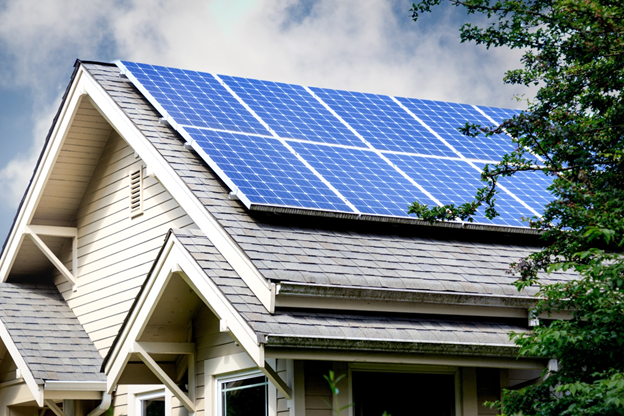Are you thinking of going solar?
With over 3 million solar installations across the US, solar is gaining popularity. Offering renewable energy and massive savings, it’s easy to see why. But solar panels are a huge investment, you must consider all the facts first.
Read on for these 5 things to consider before getting a residential solar power system.
1. How Much It Costs
How large your home is and how much energy you consume are the largest factors for the cost of home solar power. Then there’s the equipment you choose, as there are varying costs for different types.
With all this in mind, the Center For Sustainable Energy state the average cost at $15,000-$20,000. Depending on your area, there are saving opportunities and incentives too.
Until 2022, for example, you’ve got a federal tax credit for 26% of the cost. The DSIRE website will let you know what’s on offer in your area so it’s worth a look.
2. Checking Your Roof Can Handle It
Some roof types work better for a residential solar system than others. In an ideal world, you want a south or southeast-facing roof. There wouldn’t be any trees or other buildings throwing shade onto it.
But even if your roof doesn’t tick all the ideal boxes, you could still benefit. Residential solar power units can still produce energy even if they’re not facing the sun. It will produce less power though, so make sure it’s still going to meet your power needs.
3. How Durable the Solar Equipment Is
Solar panels have a lifespan of 25-30 years where they will perform their best. You want to make sure that you choose an installer who offers a lifetime warranty, given how long they can last. It’s also a good sign that the manufacturer and installer have faith that the equipment will last.
Ask how they stand up to severe weather if you live in an area prone to hurricanes and storms. Take a look at the equipment first, and learn the basics. This ensures you’ll pick a system that will stand up to anything your home and the weather can throw at it.
4. How Long the Installation Would Take
Depending on your energy needs and your property, the installation time can vary. If you have higher energy needs, you’ll need more equipment. This will take longer to install of course. Lower energy needs would mean less equipment and less time, in general.
You can expect the installation process to take anywhere between 1 day to a few weeks. It’ll also need government and sometimes utility companies sign-off to make sure it’s safe to use. Only when you have confirmation can you switch it on.
5. Are you Picking a Trusted Installer?
As we saw in point 3, solar panels have a long lifespan and you need an installer who will be by your side the whole time. Search online and read reviews from past customers before you hire someone.
At least have a phone consultation and make sure you ask them questions like:
- How long have you been in business?
- Have you worked on similar homes before?
- Do you have the right licenses and qualifications?
It’s not only about the hardware but the service you’re getting. A reputable installer like Blue Raven Solar will have warranties and lifetime care. You can find out more here at blueravensolar.com.
Have All the Facts When Choosing a Residential Solar Power System
So, there you have it! Now you know these 5 things to consider, you’ll be sure to make the right choice for you.
Choosing a residential solar power system is a huge investment. Make sure solar units can meet your energy needs and your house can handle them. And always choose an installer you can trust and feel comfortable with.
If you found this article helpful, make sure you check out our other blog posts for more!

